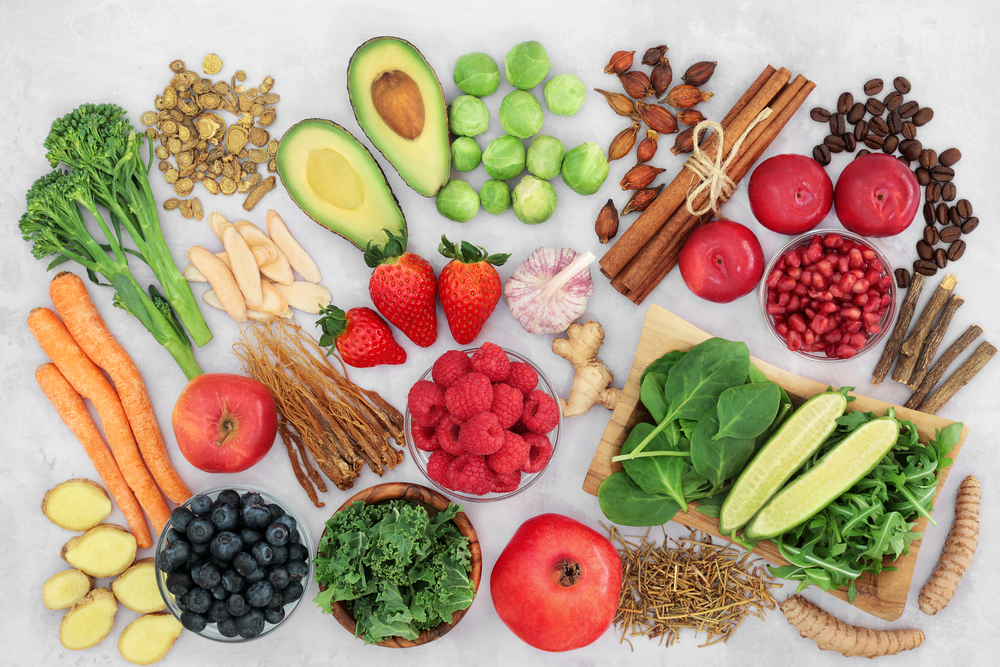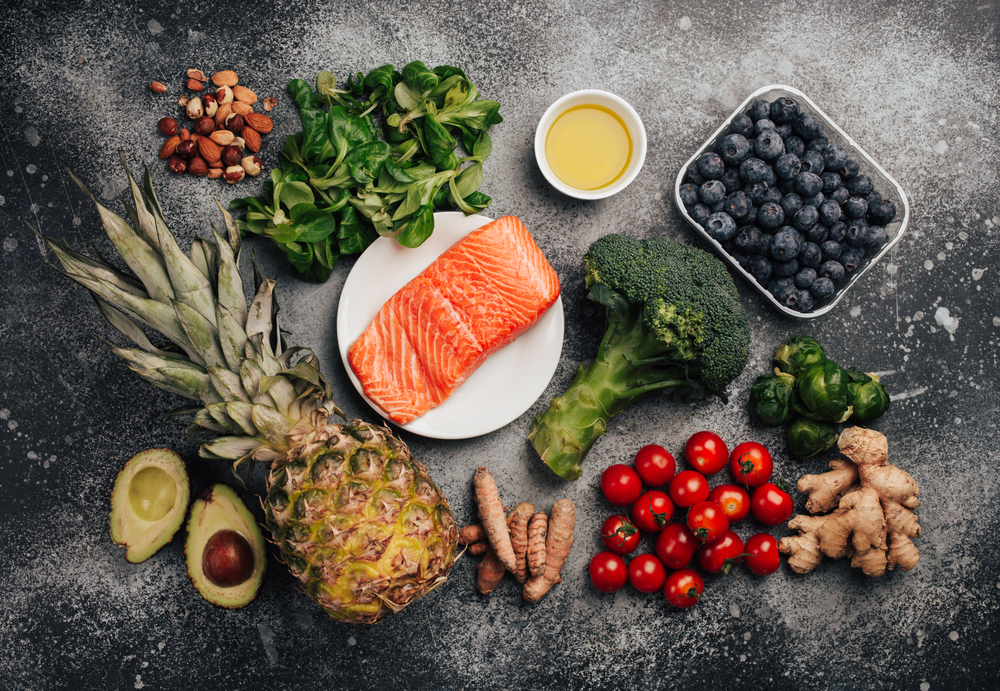Dietetic Recommendation for Inflammation
Anti-inflammatory foods are the foods consumed with the sole intent of reducing inflammation in the body. To begin with, there is no single food up to date that can be said to be solely an inflammatory food or diet rather. Different diets are put together in the form of foods believed to reduce inflammation in the body. Others are put aside due to their potential of starting or increasing the rate of inflammation.
Looking at anti-inflammatory foods, the basis lies on the following foods;
- Nuts and seeds
- Whole grain
- Legumes
- Vegetables
- Fruit
- Protein; consuming more white meat than red meat.
All these are thought to possess the ability in reducing and healing the body from inflammation. On the other hand, some foods that are known to cause an increase in the rate of inflammation include;
- Full-fat dairy products
- Wheat
- Refined grains
- Sugar
- Saturated fats.
What really brought about inflammation? Take a quick read about the history of anti-inflammatory foods.
The History of Anti-Inflammatory Foods
The whole idea of finding out more about inflammation and diet dates back to the early 1970s where scientists wanted to find out the causes and processes that resulted in one developing fever, acute and chronic diseases, and acute body respondents to acute and chronic illnesses. This later gave birth to the cytokine theory of diseases. It states that cytokines produced by the immune system can cause signs, symptoms, and damaging effects of diseases.
It was discovered that some proteins in the human body which produce macrophages and other immune cells; could be able to do damage to tissue cells triggering the syndrome of some illnesses. Hence, this led medics to start looking for ways to manage chronic patients using medications. It was then discovered that specific proteins could either produce a good or bad effect on the body’s tissue cells; they included hormones, prostaglandins and cytokines.
Keep in mind that all of this was triggered by the ancient healers. They used different foods like herbs, teas, and natural remedies to help one’s body start the ‘self-healing’ process using other substances. With the growth in technology and know-how, many healthcare providers believe that inflammation can result in pathogenic processes of many chronic illnesses such as diabetes, hypertension, some types of cancers, and cerebrovascular accidents.
Therefore, it is about the time when treatment of these diseases should involve managing underlying causes of these diseases, hence, bettering the outcomes of managing illnesses like diabetes, inflammation, cardiac diseases, and hyperlipidemia, among others that are a result of these diseases visceral adipose tissue.
What is inflammation of the body?
Inflammation of the body is the reactions within the body’s tissues due to an injury that can happen due to infections and cause by infections. Other factors that result in the inflammation of tissues include chemicals, traumas and heat; these factors irritate the body. As irritation occurs inside the body, many changes also occur within the tissues themselves, resulting in a response known as “inflammation”.
Some of the characteristics of inflammation include;
- Vasodilation of blood vessels.
- Increased permeability of blood capillaries.
- Clotting of fluid in the interstitial space.
- Swelling.
- The large movement of granulocytes and monocytes into the tissues.
Conventional Treatment of Inflammation
The best method of treating inflammation is participating in moderate exercise, maintaining a good weight status, and prescribing medications to reduce inflammation. In cases of pain, one can benefit from NSAID drugs like ibuprofen. However, these drugs cannot be used for long periods due to their potential of causing ulcers, renal issues, and other medical issues among their users.
Nutritional Management of Inflammation
The first step in managing inflammation is always to use foods that will help in reducing inflammatory symptoms in the body. Adding these foods to one’s diet can improve symptoms of illnesses among humans, especially chronic illness, and reduce one risk of chronic illness.
Foods that can help in reducing inflammation in the body
Whole Grain: The consumption of whole grain-rich foods is not associated with increased levels of inflammatory markers, and they have good numbers of adiponectin in them. The protective role played by these foods helps reduce oxidative stress, which can cause systemic inflammation in the body. A good example, due to the high level of dietary fibre, there is a control in the rate of absorption of glucose after digestion compared to the absorption of glucose from refined grains released into the bloodstream. Hence, one benefits by controlling sugar levels in the bloodstream, reducing the chances of developing diabetes.
Legumes: These foods are very special because they have fewer levels of plasma concentrations of C-reactive protein. This component circulates in the blood, increasing the chances of developing chronic illnesses, especially cardiac complications.
Nuts and Seeds: They are rich in different nutrients and unsaturated fat, which all help lower the rate of inflammation. Frequent consumption of nuts and seeds has been discovered to reduce levels of inflammatory markers. This is why people who consume more nuts and seeds have lower chances of having chronic illnesses, especially glucose control complications and cardiac conditions.
Fruit: Fresh fruit has a component called flavonoid that increases vitamin C effectiveness against inflammation.
Vegetables: Green leafy vegetables and those with bright colours are good sources of vitamin C, beta-carotene, and other antioxidants known to reduce damage inflicted on cells due to inflammation.
Sea Foods: Oily fish are excellent sources of omega-3 fatty acids, a good component of food that helps the body reduce the rate of inflammation.
Proteins: Lean white meats repairs and make new cells, antibodies, enzymes, and hormones. Consuming proteins from such foods has been associated with the reduction of inflammatory biomarkers in the body.
Water: Consuming enough amounts of water is needed for the proper functioning of the body. Consuming enough amounts helps in the ingestion, absorption, and transportations of nutrients that help in reducing inflammatory symptoms in the body.
Herbs and Spices: These food ingredients can be used to replace or reduce the use of excessive amounts of other food ingredients like salt, sugar, and saturated fats known to cause inflammatory effects to the body. Thus, they help in reducing the damage caused by using such foods.
Did you learn anything new? drop a comment in the comment section
Written by Jackson Peter Omanwa








Comments (0)